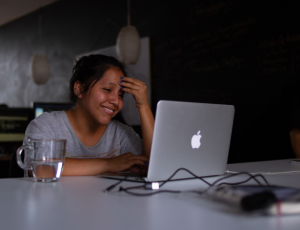Improve Concentration In Your Children

“Can’t you just sit down and do your work?!” Sound familiar? It may be difficult to understand why children struggle with concentration. Think of concentration as an exercise that requires regular training. Some of usneed a little more support in this area than others, specifically children. Concentration is especially important for children, as it is an important skill for success in school and other extracurricular activities. It helps them learn, improve and develop crucial traits such self-esteem and confidence. As they grow older, more and more concentration will be expected from them in the classroom. If your child is lacking in focus, it doesn’t mean that they’re lazy or defiant, it just means they aren’t equipped with effective strategies. Give the strategies from The Psych Professionals below a try, and see how you go. All of them won’t work for every child, so try them out and see what works best for yourself and your child.
1. Give them a Brain Break
Sitting down and completing homework or assessments is easier said than done for many children and adolescents, especially after a day at school. Sitting down at a desk all day and being expected to focus for most of the day can be mentally and physically exhausting, especially for younger children. Taking a break can make the work less frustrating and increase productivity, while also helping children self-regulate their emotions and self-monitor the way they’re feeling. So the first step – give them a break when they come home! Whether it’s an afternoon snack or some time allocated for free time – they should feel re-energised before jumping into any work. Ensure that you schedule the breaks with your child, and that the rules are clear.
2. Designate a time and space
Setting a time for homework creates an expectation for your child – it’s something they can plan for and work towards. Scheduling not only helps with time management, but also helps program your child’s brain to know when they have to study. Work with your child to plan out appropriate times for homework, as well as an appropriate space. Environment is key when thinking about getting your child to concentrate. Having distractions around can make working more difficult as multitasking impairs concentration. A space where they can work with access to support from yourself or someone else will create an environment that fosters concentration. Lay their books and stationary out and try to make the space appealing and comforting.
3. Practice mindfulness
 Concentration is an aspect of mindfulness. A busy mind can impair concentration, and you would’ve hopefully controlled for some of this by planning out work time and rest time with your child. However we all know how wonderful a child’s imagination is, and how quickly they’re sucked into it. It’s important to build on their ability to concentrate, and bringing their attention to the present moment is a perfect way to do that. Play “I spy with my little eye…”, ask them to close their eyes and tell you what they hear, or practice belly breathing. These exercises force them to focus on the now, instead the past, future or their wonderful imagination. These exercises may even become part of the routine, to be grounded and present before they begin work.
Concentration is an aspect of mindfulness. A busy mind can impair concentration, and you would’ve hopefully controlled for some of this by planning out work time and rest time with your child. However we all know how wonderful a child’s imagination is, and how quickly they’re sucked into it. It’s important to build on their ability to concentrate, and bringing their attention to the present moment is a perfect way to do that. Play “I spy with my little eye…”, ask them to close their eyes and tell you what they hear, or practice belly breathing. These exercises force them to focus on the now, instead the past, future or their wonderful imagination. These exercises may even become part of the routine, to be grounded and present before they begin work.
4. Break tasks down
Some of the work children get from school, or even tasks you assign to them, may be too overwhelming for them to process. Big tasks can be intimidating and might make children reluctant to tackle the problem. Breaking tasks down into manageable pieces increases their self-confidence that they can complete large tasks. This applies to chores, homework and learning new skills. In this way, you might start with a project or assignment and work with your child to break it into 4 sections over the week.
5. Play focus games
Remember that concentration requires training, and brain games are a perfect way to do exactly that. Puzzles, cross words and similar games are a perfect way to strengthen their ability to focus and get your child practicing concentration in a fun and interactive way. They require problem solving and focus, key skills for schoolwork. Try out some apps that you think your child might enjoy. Here is one example of a few great games and exercises for concentration:
https://www.mentalup.co/concentration-games
If you feel like your child has more difficulty concentrating than normal, it may be worth getting them checked out by a professional. There’s absolutely nothing wrong with getting a professional opinion! Trouble with concentration can be frustrating for your child, and getting them the help they need is key. If you would like to know more about how we can support you and your child, contact us now on 07 3801 1772 (Loganholme) or 07 3823 2230 (Capalaba). We offer remote telehealth consultation or if you are in Cleveland or Loganholme in QLD, Australia book an in-person appointment with our psychologists
